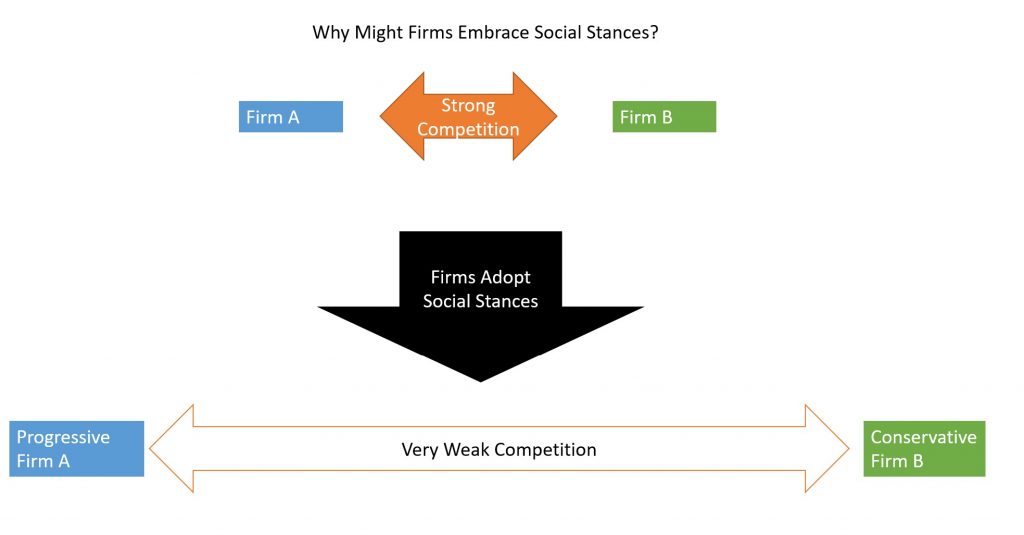YouGov is a survey firm and [in 2018] they uncovered what consumers think of firms getting involved in social issues. What was the result? Who thinks brands should be involved in social issues?
Political Involvement From Brands
I think this is a fascinating topic. I would expect more and more political involvement from brands. If one has a choice over which brand to buy, why would you not buy one that supports your values? This seems such an easy way to differentiate. Hopefully, managers care but even if they don’t why not do it? (Obviously, this ‘why not do it’ argument is also why some people are cynical).
This is good for the consumer. After all, they get to express their values in their purchases. It is also good for the firm in several ways. Not least because it makes hiring staff easier. It also dampens competition as brands are less interchangeable.

That said, it might not be a good idea for firms producing “catch-all” products. By this I mean bland, social expression-less products (e.g., toilet paper). Whatever your politics you probably are looking for similar things from your toilet paper. (Reading this again in 2021 I think that sustainability issues actually now apply heavily with toilet paper but you get the point).
Still, many brands could benefit from taking a more active political stance. This can be on either side of a debate. I would suggest the benefit depends on what your customers like. (And, of course, what you are willing to give them. Adoption by Neo-Nazis was not a deliberate plank in the New Balance strategy).
Who Doesn’t Think Brands Should be Involved in Social Issues?
That said, many people don’t agree with me. Many are suggesting that they don’t want brands involved in social issues. This does depend on the industry.
“People believe that it’s most important for charities to have a point of view, followed by pharmaceutical and media companies.”
YouGov, 2018, page 7
The YouGov report highlighted the differences and similarities between the US and British consumers. Some were just a few percentage points difference. This appears not much to note, maybe just a random effect. The profile of those who believe brands exploit issues is really interesting. Who is unhappy with brands’ social engagement? Such people tend to skew male and older. YouGov found older men were not keen on firms getting involved in human rights/issues most relevant to the LGBT+ community. There seems to be almost an anti-business right-wing politics coming through. The implication is an interesting one for business and trying to get the level of social involvement right.
Lack Of Self-Awareness Is A Problem In Surveys
Apparently, British people think advertising doesn’t change their decisions. This may just be lack of self-awareness. The data also suggests there is less to gain by political branding in the UK. I’m not 100% sure this is true, Still, the public seems to think so. Who am I to argue?
For more on social issues in marketing see here and here.
Read: YouGov (2018) The Social Voice of Brands: How British and American consumers feel about brands expressing opinions on social issues, https://today.yougov.com/topics/media/articles-reports/2018/10/01/social-voice-brands-how-us-and-uk-consumers-feel-a
